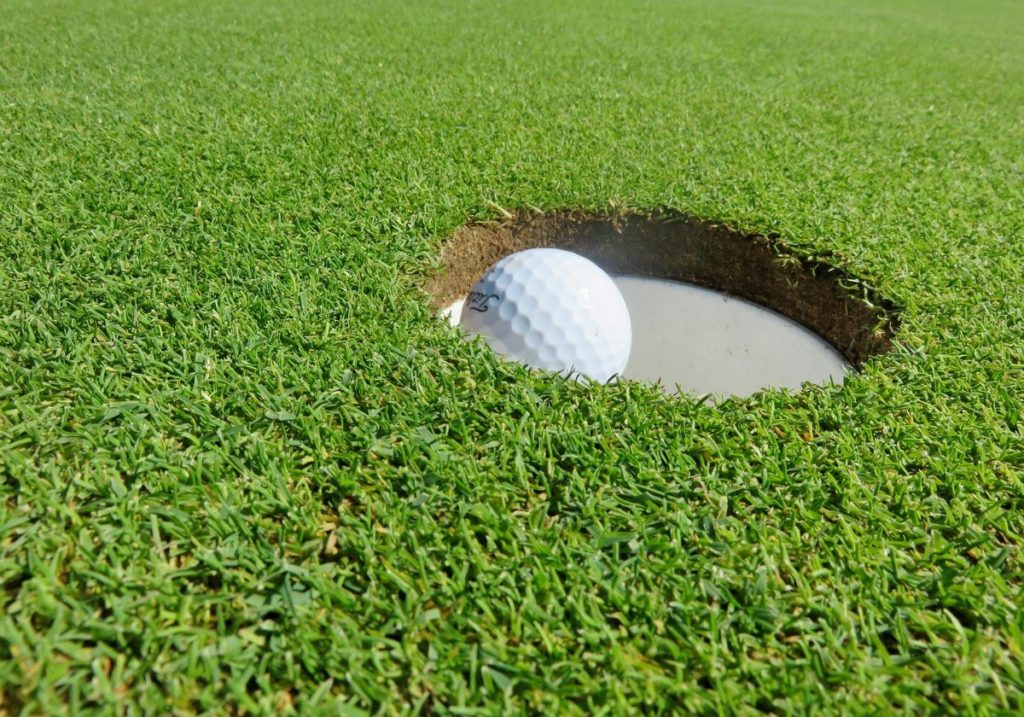If the tips and swing thoughts that you rely on have past their sell-by date, then perhaps it’s time to try something new? Over the following pages, let me share with you some of the ideas that I have found successful among my students – in several cases simply a change of emphasis on a certain element of technique that helps you to marry mind and body and play a more intuitive game of golf. Any questions, fire them over. You can post them to me at my academy website www.scottcranfield.com
Part 1 – Long Game
Part 2 – Pitching
Part 3 – Sand Play
Part 4 – Putting
Pitching an idea…
Right foot back technique helps you shallow your swing for better ball striking
For some, the right-foot-back technique you see illustrated across these pages might only ever be a drill to get a better feel going on the practice ground, but for many what I am proposing could well form the basis of a permanent new technique. Experience has shown me that this ‘fresh’ approach really can turn a player with an average/poor short game into an accomplished wedge player, beaming with confidence.
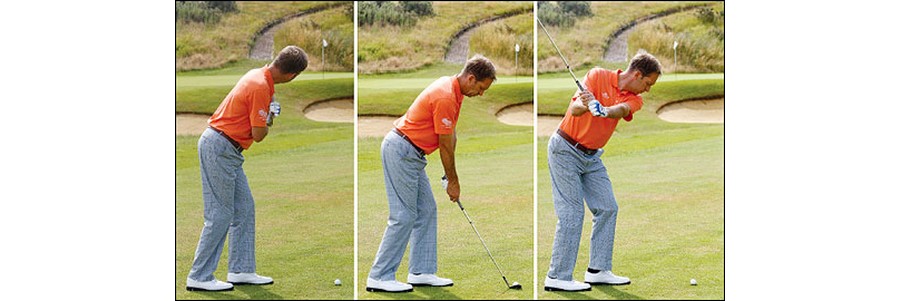
In essence this technique will allow you to strike your shots consistently and directly at the target every time. You will have an improved delivery plane and path, thus using the ‘bounce’ of the wedge correctly to create a sweet and consistent strike pattern. The technique works by creating a single pivot axis (essentially around your left hip, leading side), and in so doing it helps you to eliminate the inconsistencies often caused by employing the 2- pivot axis that characterises a full swing when you are looking for distance (i.e. rotating around the axis of the right hip in loading up the backswing before unwinding around the left hip in the downswing.)
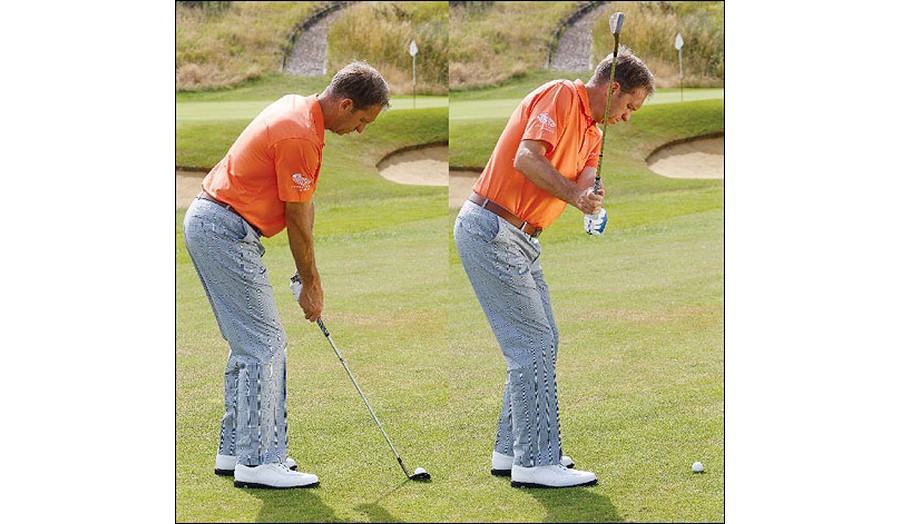
Remember, these shots are about accuracy, not distance. By its very nature, this technique will limit the speed you generate and how far you are able to hit your scoring clubs. So it’s up to you to go out and measure your landing distances with all of your lofted wedges. Swing the club only at a speed you can comfortably control – don’t compromise your balance.
Lets get to it. Adjust your stance so your right foot is drawn back while at the same time keeping your shoulders and chest parallel with the target line. Your weight will be supported over your left foot, and you should feel stable against the ground under your foot.
In this stance your right hip should feel back and a little lower (you might say softer), which immediately creates that little pivot in the mid section, the result being that you get the club approaching the ball on a much more manageable, shallow plane. In just a few minutes’ you will begin to hear that wonderful sound of the clubhead ‘bruising’ the turf as you get the bounce working – a recipe for sweet striking in this critical scoring range.
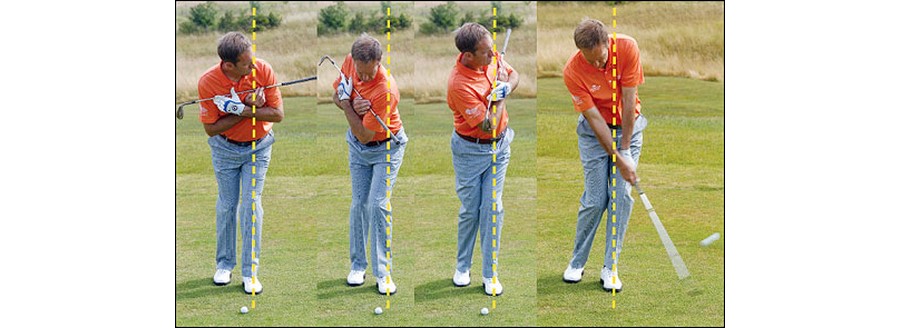
With this technique your right arm will easily fold in the backswing, which helps the club swing more around (and in harmony with) the body action. This is especially important for those of you who display a tendency to lift the arms in the backswing (inset above), which is a common problem for golfers who exaggerate the open stance that is typically prescribed to play shots from inside Gap wedge distance.
One final tip: as a drill cut a tennis ball in half and use the two halves as pressure pads. Placing your left foot down on them will reinforce the idea of remaining grounded on the left side, helping you to create that single axis through your left side, which is the key focus in your new pitching technique.
There is no dramatic weight shift here – its all about repeating a swing that will enable you to control impact, flight and spin to the flag.
Get out of your own way!
The right-foot-back drill pre-empts the soft rotation of the right hip in the backswing, allowing the arms and the body to work together and, as a result, shallowing out your delivery into the back of the ball – bingo!
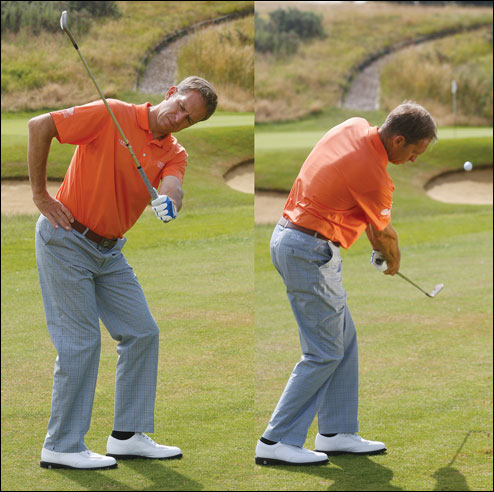
(Right) ‘Bruise the turf’: you will quickly recognise the sound of a well-struck pitch shot as you shallow the delivery of the club and utilise the bounce through impact
